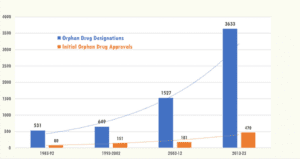How the Consolidated Appropriations Act, 2023 Affects Annuities

What You Need to Know
Annuity provisions are in an appropriations bill because of how Senate rules work.
One change could make QLACs, or deferred income annuities, more popular with clients.
Another change could increase the number of ETF options available inside annuities.
Signed into law by President Joe Biden on Dec. 29, the Consolidated Appropriations Act, 2023 governs U.S. spending until the end of the fiscal year, on Sept. 30.
The bill contains a little bit of everything, including provisions that affect annuities.
If you’re looking for topics you can use to start conversations with consumers, and you’re just starting to think about what the CAA, 2023 means for retirement savers, here’s a primer.
Why Annuity Provisions Are in an Appropriations Act
The Consolidated Appropriations Act is an “omnibus” budget bill, meaning that it contains many different provisions.
Under the Senate’s usual rules for debate, ordinary bills need at least 60 votes to reach the Senate floor.
The Senate has a special legislative process for budget-related legislation, the budget reconciliation process, that makes passage easier for one, and, in some cases, two budget bills per year, but reducing the number of votes needed for Senate passage to 51.
That’s why appropriations bills tend to be omnibus bills that contain many different provisions: given how the Senate works, attaching many things to one big, must-pass bill makes sense.
Putting the annuity provisions in CAA, 2023 helped the provisions get through the Senate with just 51 votes.
Changes to QLACs
QLACs, or “qualified longevity annuity contracts,” are deferred fixed annuity contracts purchased with money from a retirement account like an IRA or 401(k).
These annuities are great for retirees concerned about outliving their savings, and they have tax benefits, as well.
Previously, lifetime contributions to QLACs were limited to the lower of $135,000 or 25% of the amount of the retirement account. That limited the income one could receive from a QLAC.
The CAA, 2023 eliminated the percentage cap altogether and increased the dollar amount to $200,000. The dollar amount will be adjusted for inflation, as well.
This means retirees can move the bulk of their retirement account into a QLAC to avoid required minimum distribution deadlines, or simply to stretch their savings.
Retirees with a lower level of savings also have more incentive to choose QLACs.
ETF changes
Prior to passage of the CAA, 2023, variable life insurance and annuity plans that included exchange-traded funds were in legal limbo.
The CAA, 2023 cleared up the legal conflicts and put ETFs on a more solid footing.
We expect ETFs to become a bigger part of variable annuities. The number of variable annuity options may also increase.




